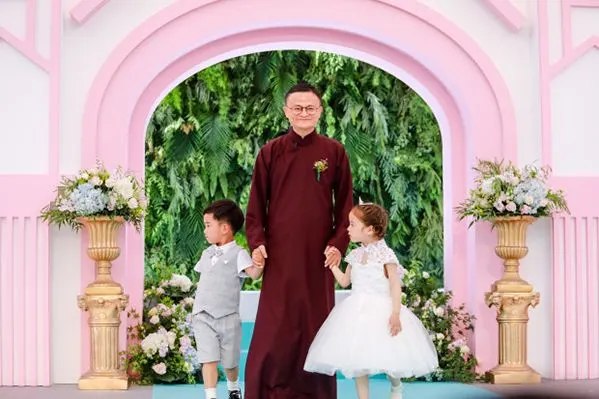Jack Ma, the founder and chairman of China’s e-commerce giant Alibaba (BABA), has drawn controversy for his support on China’s “996” work shift, saying working from 9 a.m. to 9 p.m. for six days of the week is a “blessing.” Now besides his devotion to work, the outspoken billionaire wants employees to follow “669” in their personal life.
Ma commented on 669 during Alibaba Group Holding’s “wedding” that happens every year on Ali Day, May 10. What is 669? It refers to having sex six times in six days, and lasting as long as possible. (The number 9 represents “long lasting” in Chinese.) Hundreds of newly married Alibaba employees joined the ceremony at the company’s headquarters in Hangzhou, China, where Ma acts as a wedding officiant and gives a speech.
This year’s key message from the founder to newly-married employees is to have more kids. “The first KPI of marriage is to have results. There must be products. What is the product? Have children,” Ma said.
There were 15 million newborns in China last year — marking the lowest birth rate since 1961. For the past three decades, Beijing has imposed the one-child policy. Under pressure from a shrinking labor pool and ageing population, China relaxed the policy in 2016 by allowing couples to have more than one baby.
But the easing of the regulation hasn’t delivered immediate results. Many couples have opted not to have babies due to concerns including rising housing prices and access to high-quality education. In China, owning an apartment is usually seen as a prerequisite for getting married. In Hangzhou, Alibaba’s home turf, the average price for a two-bedroom apartment is $500,000.
A low birthrate means China could be “getting old before getting rich.” As people over the age of 60 account for 18% of the country’s population, the demographic trend spells a major challenge for the country’s economy and Alibaba’s business, both heavily rely on consumption.



